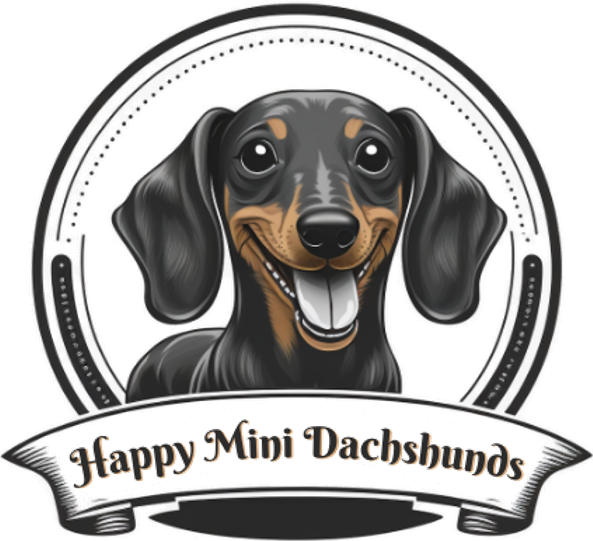Mini dachshunds are adorable and fun-loving dogs that have captured the hearts of many pet owners. However, one common issue that mini dachshund owners face is their biting behavior. Mini dachshunds, like many other dog breeds, have a natural inclination to bite, which can be attributed to their history as hunting dogs.
While a nip or mouthing may seem harmless, it can quickly escalate into more aggressive biting behavior if not addressed properly. Mini dachshunds can bite out of fear, anxiety, or aggression, which can be harmful to both the dog and their owners.
In this blog post, we will discuss the various causes of mini dachshund biting behavior and provide effective training techniques to stop it. We will also cover preventative measures that can be taken to avoid biting behavior in the future. By the end of this post, you will have a better understanding of why mini dachshunds bite, how to stop the behavior, and how to prevent it from occurring in the first place.
So, whether you’re a new mini dachshund owner or have had one for years, keep reading to learn how to keep your furry friend from biting.
Key Takeaways:
- Understand why mini dachshunds bite and what triggers them
- Learn effective training techniques to stop biting, including positive reinforcement and redirecting
- Prevent future biting incidents by socializing your pup and providing appropriate toys and activities
Understanding mini dachshund biting
Mini dachshunds, like any other dog breed, may bite for various reasons. It is important to understand the underlying causes of biting behavior in mini dachshunds to effectively address the issue. Here are some of the common causes of mini dachshund biting behavior:
Playfulness
Mini dachshunds are playful dogs and may use biting as a way to interact and play with their owners. They may also nip or mouth as a way of exploring their surroundings, which is common among puppies.
Fear or anxiety
Mini dachshunds may also bite out of fear or anxiety. They may feel threatened or uncomfortable in certain situations, such as meeting new people or being in unfamiliar environments. In such cases, they may resort to biting as a way to protect themselves.
Lack of socialization
A lack of socialization can also contribute to biting behavior in mini dachshunds. Dogs that are not exposed to different people, animals, and environments may be more prone to fear and anxiety, which can lead to biting.
Aggression
In some cases, mini dachshunds may exhibit aggressive behavior, which can be attributed to genetics, trauma, or other factors. Aggressive biting behavior should be taken seriously and addressed immediately, as it can be dangerous to both the dog and its owners.
It is important to recognize the types of biting behavior that mini dachshunds may exhibit. These include mouthing, nipping, and biting. Mouthing is a gentle nibble without applying pressure, while nipping is a harder bite with slight pressure. Biting involves a strong and forceful bite that can cause injury.
Mini dachshunds often exhibit warning signs before biting, such as growling, snarling, or baring their teeth. They may also show physical signs of aggression, such as raised fur on their backs or ears pulled back.
Training techniques to stop mini dachshund biting
Now that you understand the reasons why mini dachshunds may bite, let’s explore some effective training techniques to address the behavior.
Positive reinforcement training
Positive reinforcement training is a training technique that rewards good behavior and ignores bad behavior. When your mini dachshund exhibits good behavior, such as refraining from biting, reward them with praise, treats, or toys. This will reinforce the positive behavior and encourage them to repeat it.
Socialization
Socializing your mini dachshund can help reduce biting behavior by exposing them to different people, animals, and environments. This can help them become more comfortable and confident in various situations, reducing the likelihood of fear or anxiety-based biting.
Bite inhibition training
Bite inhibition training teaches your mini dachshund to control the force of their bites. This training involves yelping or making a high-pitched sound when your dog bites too hard, which will startle them and discourage them from biting too hard in the future.
Redirecting behavior
Redirecting behavior involves giving your mini dachshund an alternative behavior to biting. For example, when your dog starts to bite, give them a chew toy or a treat to redirect their attention and satisfy their need to chew or explore.
Consistency and patience
Consistency and patience are key when training your mini dachshund to stop biting. Be sure to consistently use the same training techniques and remain patient as the behavior may take time to change.
It is important to note that punishment-based training techniques, such as hitting or yelling, are not effective and can make the biting behavior worse. These techniques can also damage the trust and bond between you and your mini dachshund.
Preventing mini dachshund biting in the future
Preventing mini dachshund biting requires a proactive approach to training and management. By following the tips below, you can create a safe and harmonious environment for your dog and your family.
Socialization
Socialization is an essential part of preventing biting in mini dachshunds. It involves exposing your dog to different people, animals, and situations, so they learn how to behave in different contexts. When socializing your mini dachshund, start slowly and expose them to different stimuli gradually. Some examples of socialization exercises include:
- Introducing them to other dogs in a controlled setting, such as a dog park or doggy daycare
- Taking them to different places, such as a busy street or a quiet park
- Introducing them to different people, including children, adults, and seniors
- Exposing them to different sounds and smells, such as traffic or other pets
Supervision
Supervision is crucial to preventing biting in mini dachshunds. It involves keeping a close eye on your dog and intervening when they show signs of aggression or biting. You can supervise your mini dachshund by:
- Keeping them on a leash or in a crate when necessary
- Using baby gates or other barriers to keep them away from potential triggers
- Keeping a close eye on them when they’re interacting with children or other pets
- Removing them from situations that may cause them to become aggressive or overstimulated
Positive reinforcement
Positive reinforcement is a training technique that rewards your dog for good behavior. By using positive reinforcement, you can teach your mini dachshund that good behavior is rewarded, and bad behavior is not. Examples of positive reinforcement include:
- Giving your dog treats or toys when they behave well
- Praising your dog when they follow commands or show good behavior
- Using clicker training to teach your dog new behaviors
Consistency
Consistency is essential when training your mini dachshund to prevent biting. It involves setting clear boundaries and sticking to them. By being consistent, you can teach your dog what is expected of them and what behavior is not acceptable. Some tips for being consistent include:
- Using the same commands and cues every time you train your dog
- Establishing a routine and sticking to it
- Avoiding situations that may confuse your dog or send mixed signals
By following the tips above, you can prevent biting in your mini dachshund and create a safe and happy environment for your family and your pet. Remember, training takes time and patience, so be consistent and persistent in your efforts.
Related: How to Discipline a Mini Dachshund
Conclusion
In conclusion, biting is a natural behavior for Mini Dachshunds, and it can be challenging to stop it completely. However, as responsible pet owners, we must take steps to prevent and manage biting behavior to ensure the safety and well-being of our pets and those around them. Understanding the reasons behind biting behavior is crucial, and training techniques, such as positive reinforcement and desensitization, can be effective in correcting the behavior. Additionally, preventative measures, such as socialization and providing appropriate outlets for chewing and play, can help reduce the likelihood of biting in the future.
Remember, every Mini Dachshund is unique, and what works for one dog may not work for another. It may take time, patience, and consistency to see progress, but with the right approach, you can help your Mini Dachshund overcome their biting behavior. Seek professional help if needed, and always prioritize your pet’s well-being.

